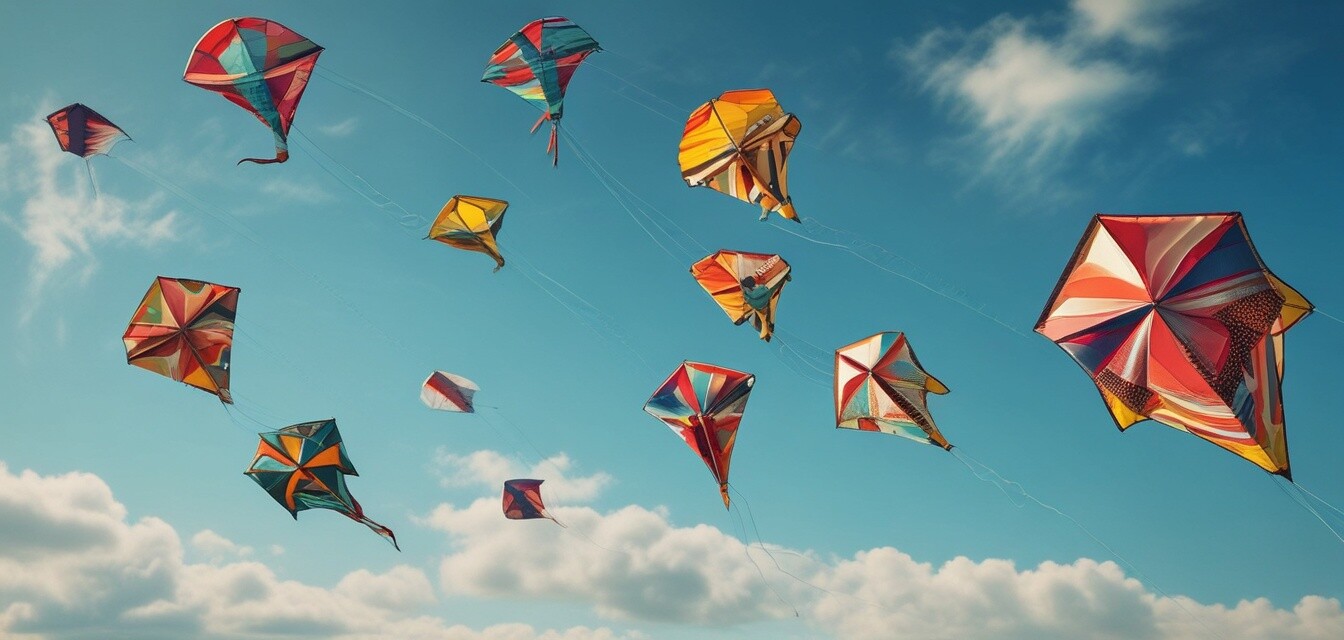
Innovating Kite Designs: The Future of Aerial Art
Key Takeaways
- Technology is transforming kite designs into smart, interactive experiences.
- Artistic innovations are expanding the boundaries of kite aesthetics.
- New materials and manufacturing techniques are enhancing durability and performance.
- The future of kites involves both recreational enjoyment and competitive showcases.
- Staying updated with trends can inspire unique flying experiences.
Kite flying has long been associated with joy and creativity. Today, the intersection of technology and artistic expression is driving the evolution of kite designs. As we explore the future of aerial art, we'll delve into how smart features, innovative materials, and artistic approaches are reshaping the landscape of kites.
1. The Rise of Smart Kites
Smart kites represent one of the most exciting trends in kite design. Incorporating technology such as sensors, LED lights, and remote control features, these kites offer enhanced interaction and customization. Here are some features transforming how we enjoy kites:
- Sensor technology: Enables kites to analyze wind conditions and adjust their flight patterns.
- LED integration: Allows for stunning nighttime displays that can be programmed for various patterns.
- Remote control: Provides users the ability to maneuver kites with precision from the ground.
With the growing popularity of smart kites, enthusiasts can explore new dimensions of kite flying. For more on kite accessories that enhance your experience, check out our Kite Accessories page.
2. Artistic Innovations in Kite Designs
As kite flying has evolved as a form of aerial art, designers are using innovative techniques to create visually striking kites. The artistic approach has moved beyond traditional designs to include:
- New materials: Lightweight fabrics and sustainable materials that enhance flexibility and color vibrancy.
- Unique shapes: Cutting-edge designs like 3D kites and dynamic sculptures that captivate audiences.
- Collaboration with artists: Partnerships with artists to produce limited-edition kites as collectible pieces.
Examples of Artistic Kites
| Design Element | Description | Impact |
|---|---|---|
| 3D Designs | Kites shaped like animals or objects | Increased visual engagement and fascination |
| Light Patterns | Embedded LED patterns that change in flight | Creates mesmerizing nighttime displays |
| Artist Collaborations | Kites designed by renowned artists | Bridges art and aviation, high display value |
These artistic innovations not only enhance the aesthetic appeal of kites but also position them as cultural artifacts. To stay abreast of trends in kite designs, explore our latest updates in the News and Trends section.
3. Advances in Materials and Durability
As kite design advances, so do the materials used. Today's kites are made from sophisticated fabrics that offer increased durability and performance in various weather conditions. Key advancements include:
- Ripstop nylon: A lightweight, tear-resistant material that ensures longevity.
- Composite frames: Carbon fiber and fiberglass provide strength without adding weight.
- Eco-friendly materials: Sustainable options that appeal to environmentally conscious consumers.
The Impact of New Materials
These advanced materials not only improve the flight experience but also make kites more accessible to a wider audience. With kites designed to withstand the elements, hobbyists can enjoy flying in a range of conditions, thereby expanding their activities. For essential gear to support your kite flying, visit our Kid's Kite Collections.
4. The Competitive Landscape
As kite flying becomes more sophisticated, so does the competitive environment. Kite festivals and competitions are incorporating new technological elements, making them exciting for participants and spectators alike. Key trends in competition include:
- Multi-disciplinary events: These events showcase flying techniques alongside artistic presentations.
- Drone integration: Allows for overhead shots of kite displays, enhancing the viewer experience and engagement.
- Interactive judging: Spectator votes can influence kite competition outcomes.
Future of Competitions
The future holds limitless possibilities for kite competitions. As aerial art continues to evolve, so too will the events that celebrate it. Stay updated with the latest competition news in our Tips and Techniques section.
Pros
- Increased creativity in kite designs.
- Enhanced interactive experiences with smart technology.
- Greater accessibility thanks to durable materials.
Cons
- Potentially higher costs for advanced kites.
- Technology may complicate the simplicity of kite flying.
Conclusion
The future of kite designs is bright, filled with innovation and artistic expression. As we observe these transformations, it's essential to stay connected to the latest trends and technologies shaping our beloved pastime. Embracing this progress not only enhances our flying experiences but also fosters a deeper appreciation for the artistry involved in kite design.